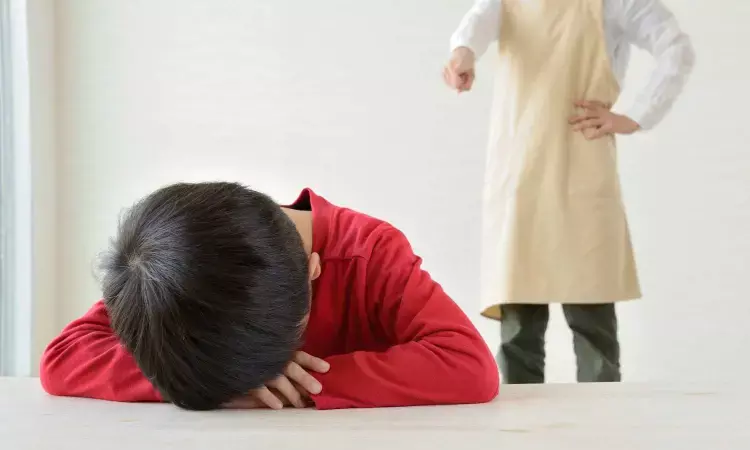- Home
- Medical news & Guidelines
- Anesthesiology
- Cardiology and CTVS
- Critical Care
- Dentistry
- Dermatology
- Diabetes and Endocrinology
- ENT
- Gastroenterology
- Medicine
- Nephrology
- Neurology
- Obstretics-Gynaecology
- Oncology
- Ophthalmology
- Orthopaedics
- Pediatrics-Neonatology
- Psychiatry
- Pulmonology
- Radiology
- Surgery
- Urology
- Laboratory Medicine
- Diet
- Nursing
- Paramedical
- Physiotherapy
- Health news
- Fact Check
- Bone Health Fact Check
- Brain Health Fact Check
- Cancer Related Fact Check
- Child Care Fact Check
- Dental and oral health fact check
- Diabetes and metabolic health fact check
- Diet and Nutrition Fact Check
- Eye and ENT Care Fact Check
- Fitness fact check
- Gut health fact check
- Heart health fact check
- Kidney health fact check
- Medical education fact check
- Men's health fact check
- Respiratory fact check
- Skin and hair care fact check
- Vaccine and Immunization fact check
- Women's health fact check
- AYUSH
- State News
- Andaman and Nicobar Islands
- Andhra Pradesh
- Arunachal Pradesh
- Assam
- Bihar
- Chandigarh
- Chattisgarh
- Dadra and Nagar Haveli
- Daman and Diu
- Delhi
- Goa
- Gujarat
- Haryana
- Himachal Pradesh
- Jammu & Kashmir
- Jharkhand
- Karnataka
- Kerala
- Ladakh
- Lakshadweep
- Madhya Pradesh
- Maharashtra
- Manipur
- Meghalaya
- Mizoram
- Nagaland
- Odisha
- Puducherry
- Punjab
- Rajasthan
- Sikkim
- Tamil Nadu
- Telangana
- Tripura
- Uttar Pradesh
- Uttrakhand
- West Bengal
- Medical Education
- Industry
Corporal punishment might impact brain activity and neurodevelopment leading to anxiety and depression

Research in the past has linked corporal punishment to a decline in adolescent health and negative effects on behavior, including an increased risk for anxiety and depression. A new new study explores how corporal punishment might impact neural systems to produce those adverse effects.
Researchers have found in a new study that Corporal punishment might impact brain activity and neurodevelopment leading to anxiety and depression.
The study appears in Biological Psychiatry: Cognitive Neuroscience and Neuroimaging.
Corporal punishment can be simply defined as the "intentional infliction of physical pain by any means for the purpose of punishment, correction, discipline, instruction, or any other reason." This violence, particularly when inflicted by a parent, evokes a complex emotional experience. The researchers, led by Kreshnik Burani, MS, and working with Greg Hajcak, PhD, at Florida State University, wanted to understand the neural underpinnings of that experience and its downstream consequences.
The researchers conducted a longitudinal study on 149 boys and girls ages 11 to 14 from the Tallahassee, FL, area. Participants performed a video game-like task and a monetary guessing game while undergoing continuously recorded electroencephalography, or EEG-a noninvasive technique to measure brain-wave activity from the scalp. From the EEG data, the researchers determined two scores for each participant – one reflecting their neural response to error and the other reflecting their neural response to reward.
Two years later, participants and their parents completed a series of questionnaires to screen for anxiety and depression and to assess parenting style. As expected, kids who had experienced corporal punishment were more likely to develop anxiety and depression.
"Our paper first replicates the well-known negative effect that corporal punishment has on a child's wellbeing: we found that corporal punishment is associated with increased anxiety and depressive symptoms in adolescence. However, our study goes further to demonstrate that corporal punishment might impact brain activity and neurodevelopment," said Burani.
That was reflected by larger neural response to error and a blunted response to reward in the adolescents who received physical punishments.
"Specifically," Burani added, "our paper links corporal punishment to increased neural sensitivity to making errors and decreased neural sensitivity to receiving rewards in adolescence. In previous and ongoing work with Dr. Hajcak, we see that increased neural response to errors is associated with anxiety and risk for anxiety, whereas decreased neural response to rewards is related to depression and risk for depression. Corporal punishment, therefore, might alter specific neurodevelopmental pathways that increase risk for anxiety and depression by making children hypersensitive to their own mistakes and less reactive to rewards and other positive events in their environment."
Cameron Carter, MD, Editor of Biological Psychiatry: Cognitive Neuroscience and Neuroimaging, said of the findings, "Using EEG, this study provides new insights into the mechanisms that may underlie the adverse effects of corporal punishment on mental health in children as well as the neural systems that may be affected."
The work provides new clues as to the neural underpinnings of depression and anxiety and could help guide interventions for at-risk youth.
Reference:
Kreshnik Burani, C.J. Brush, Chandler Spahr, George M. Slavich, Alexandria Meyer, Greg Hajcak,Corporal Punishment is Uniquely Associated with a Greater Neural Response to Errors and Blunted Neural Response to Rewards in Adolescence, Biological Psychiatry: Cognitive Neuroscience and Neuroimaging,2022, https://doi.org/10.1016/j.bpsc.2022.09.004
Dr Kamal Kant Kohli-MBBS, DTCD- a chest specialist with more than 30 years of practice and a flair for writing clinical articles, Dr Kamal Kant Kohli joined Medical Dialogues as a Chief Editor of Medical News. Besides writing articles, as an editor, he proofreads and verifies all the medical content published on Medical Dialogues including those coming from journals, studies,medical conferences,guidelines etc. Email: drkohli@medicaldialogues.in. Contact no. 011-43720751


